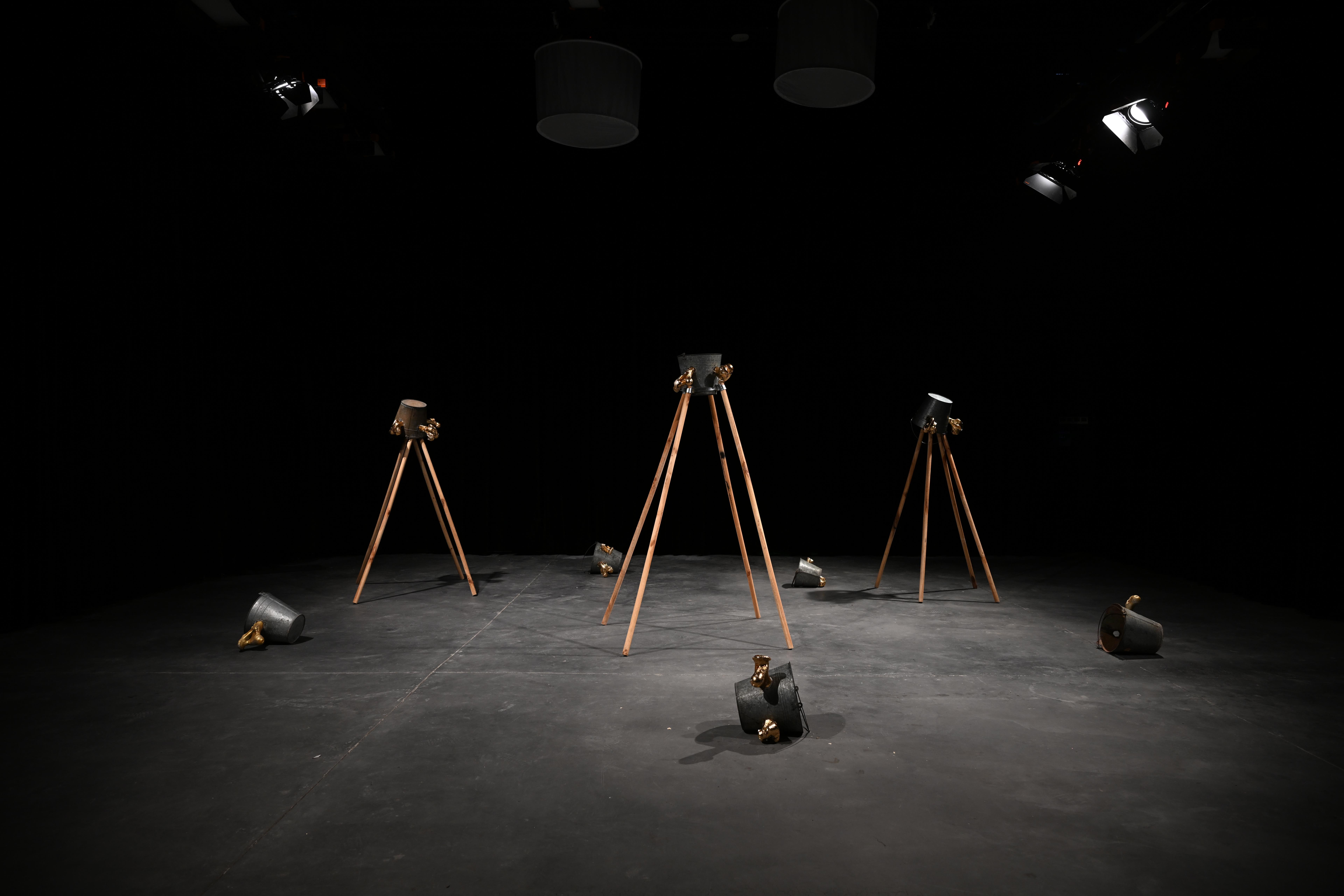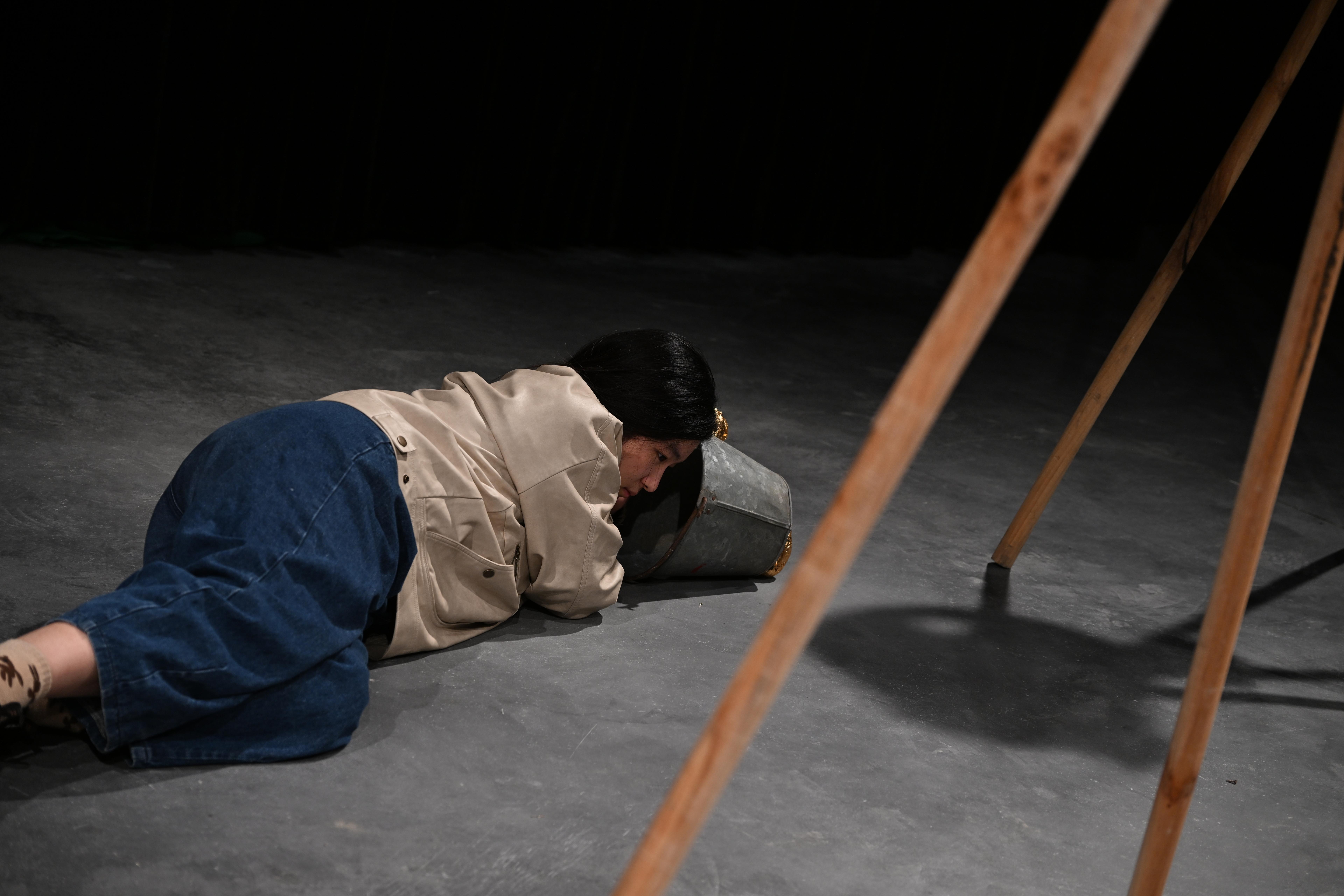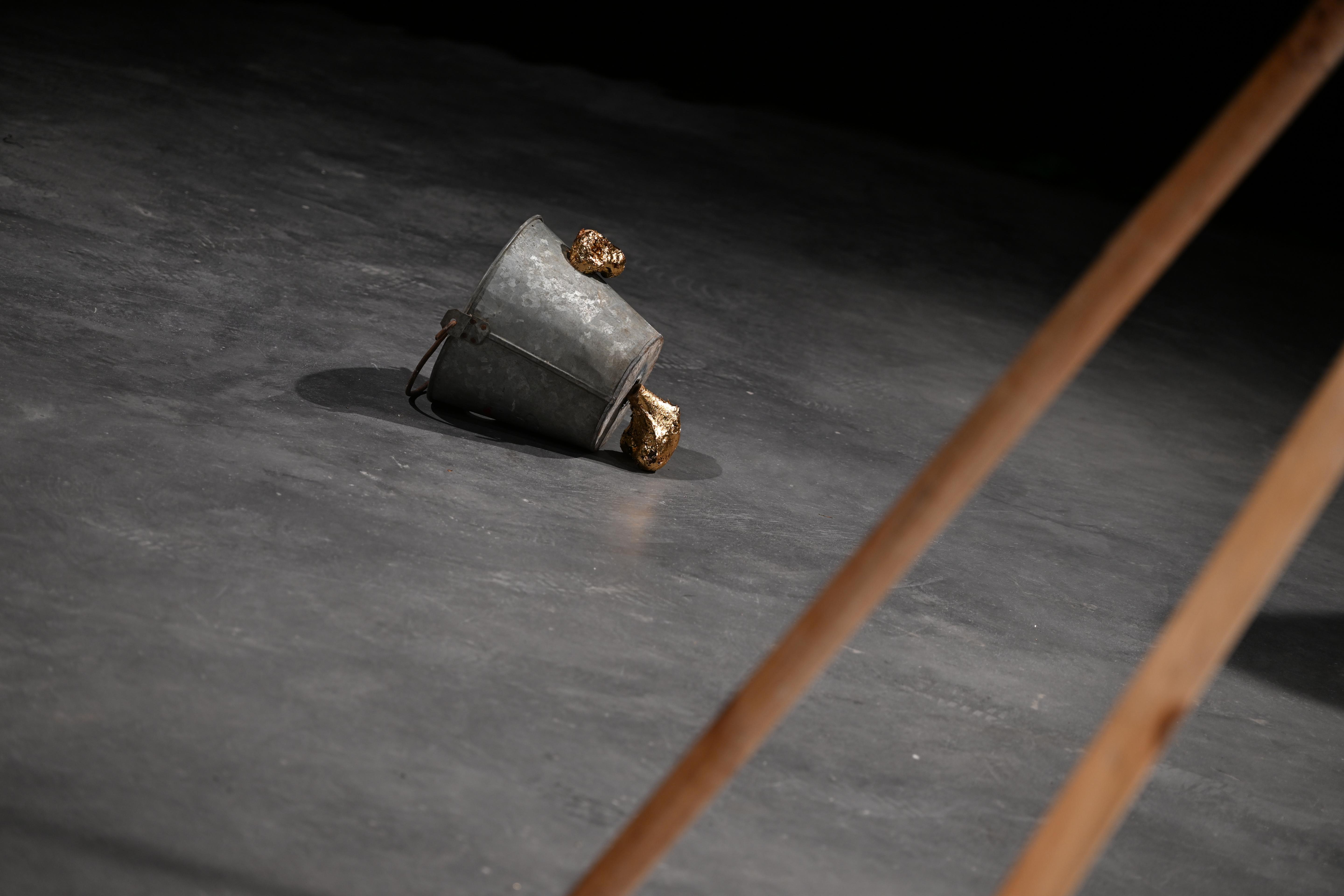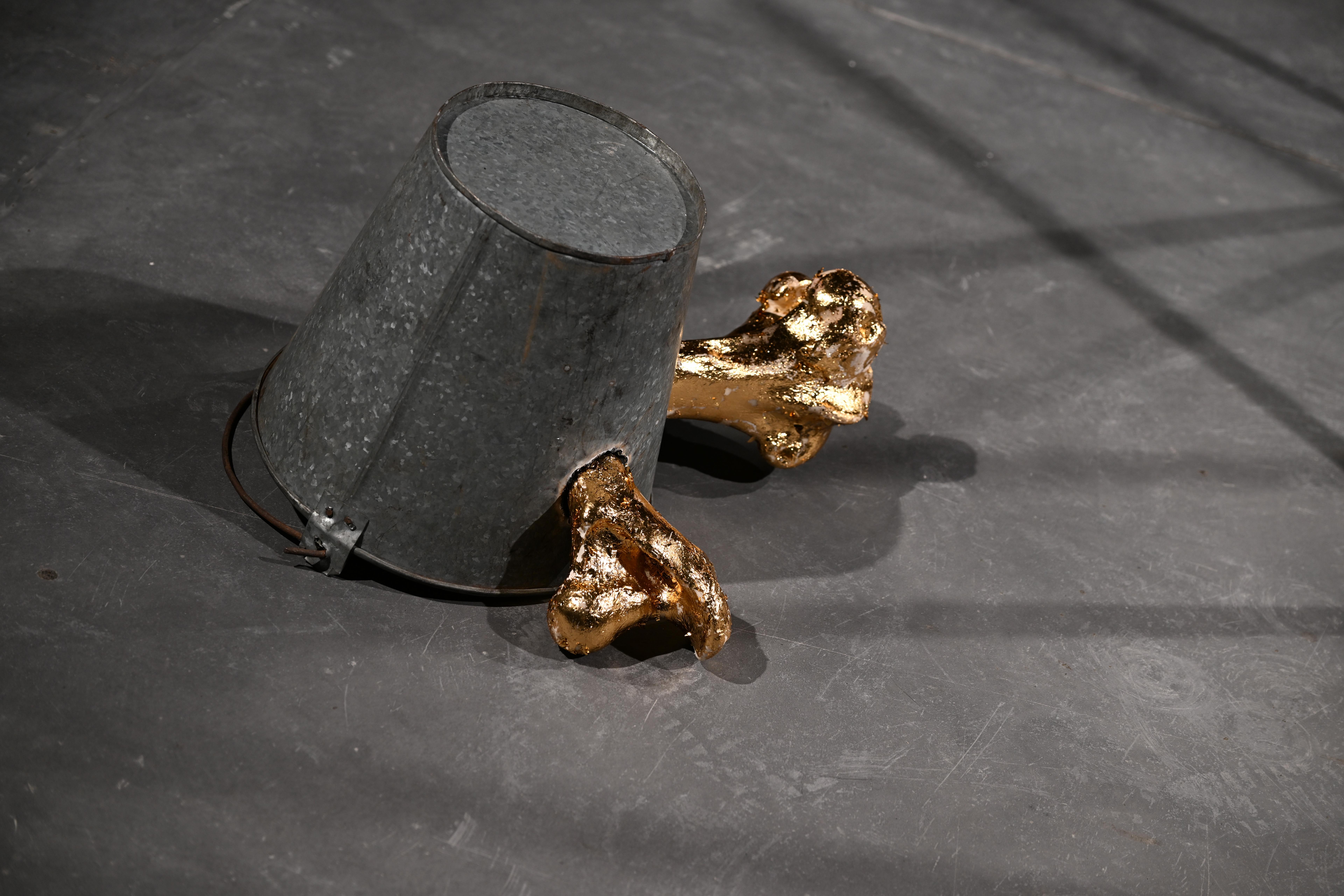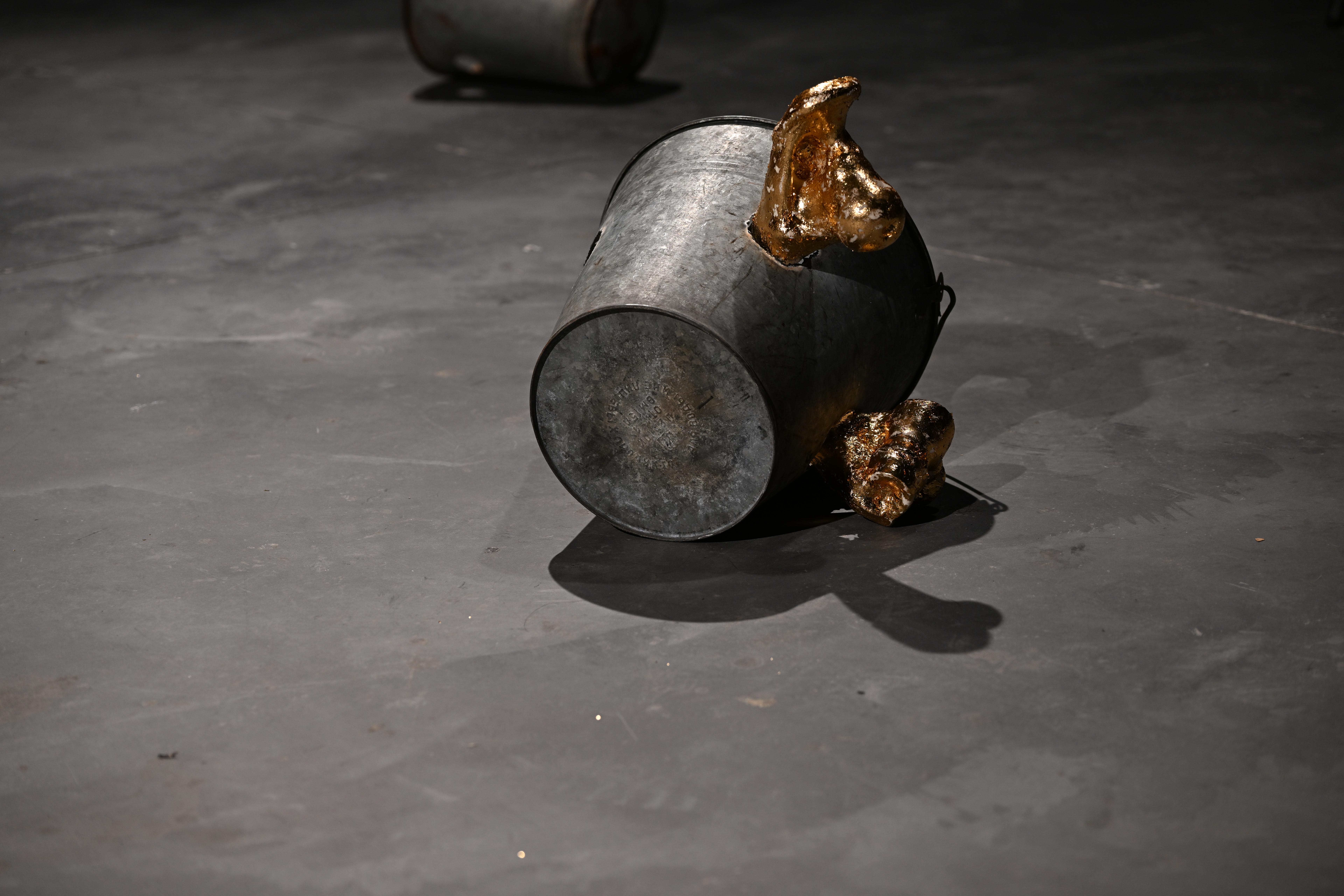The artwork An Echo That Never Fades does not aim to reconstruct a fixed historical scene but rather explores the essence of time, the fluidity of memory, and the ways in which power shapes existence. At its core lies the century-long trajectory of the former site of Saint Nicholas Orthodox Church in Harbin, China. Like a multi-layered allegory, it examines the cycles of existence and void, the dialectics of construction and deconstruction, and the fate of individuals drifting in the torrents of history.
The heart of this piece reimagines the concept of ruins—not just the disappearance of physical remnants, but also the collapse of faith and collective memory. Harbin’s historical site serves as a microcosm of history, where each ideological shift has been layered over others, leaving behind indelible scars. From the solemnity of religion to the fervor of revolution, and eventually to the pragmatism of consumerism, the interplay of presence and absence creates an ontological fracture.
In the exhibition space, a sound installation composed of nine iron barrels is presented. Each barrel is adorned with large bones covered in gold leaf. Inside each barrel, a bone conduction audio device plays poetry written by the artist. The installation seeks to explore the complex relationship between memory and loss, the sacred and the mundane.
This sound installation materializes fragments of memory as tangible entities. The nine iron barrels, arranged in parallel, symbolize the repetition of history, suggesting the multiplicity and fragmentation of narratives. The juxtaposition of gold-leaf-coated bones creates an unsettling tension, presenting a stark reminder of the impermanence of glory: the gold leaf does not symbolize eternal radiance but instead sharply critiques the vanity of power. It seeks to mask the shadow of death, to obscure the wounds inflicted by violence. The stark contrast between the coldness of the bones and the warmth of the gold leaf unveils the fragile essence behind grand narratives and the insignificance of individuals.
The use of bone conduction sound blurs the boundary between internal experience and the external world. The poetry is not received through traditional auditory means but is transformed into vibrations that resonate through the body, reaching the skull and touching the depths of consciousness. This deeply personal and almost invasive experience reflects how the traumas of history are internalized as personal suffering, symbolizing the intricate and concealed connections between individual and collective memory. Those unspeakable experiences, swallowed by the flood of time, resurface through the resonance of the body.
The title An Echo That Never Fades is a satirical appropriation of the rhetoric of power, highlighting the political nature of memory and how power shapes reality through the construction of memory. Acts like erasing inscriptions, dismantling monuments, and rewriting history form an allegory of the rise and fall of power, exposing the illusionary nature of “never forgetting.” This work does not align with any specific ideology but instead questions all mechanisms of enforced memory. It seeks to reveal the authentic texture of individual experience within the fissures of official narratives.
The Jewish elder who obsessively searches for the lost church becomes an allegorical figure—a ghost wandering through the labyrinth of history, disconnected from time. His “madness” subverts rational historical narratives and challenges the temporal order governed by established logic. His pursuit is not merely for the ruins of a building but a persistent inquiry into a way of life that has vanished.
Ultimately, the site has been transformed into an underground shopping mall and subway station, symbolizing the commodification and spectacle of history. The bustling noise of commerce seems to erase all traces of the past, yet buried beneath lies a history that cannot be entirely erased. My work seeks to capture these repressed ghosts of memory amid the clamor of modernity, questioning the nature of time’s passage and the individual’s position within the currents of history.
An Echo That Never Fades does not provide definitive answers but instead raises enduring questions: To what extent can we truly grasp memory? What have we forgotten, willfully or unconsciously? Who holds the authority to define and write history? When grand narratives collapse, where do personal experiences go? This work invites the audience into a contemplative space to reflect on the intricate connections between time, memory, and existence, and to reconsider our relationship with the echoes of history.

